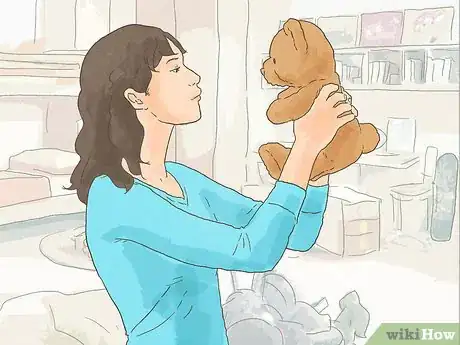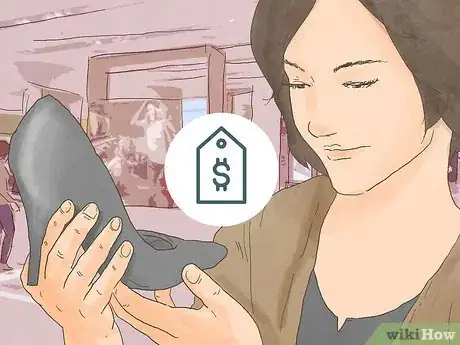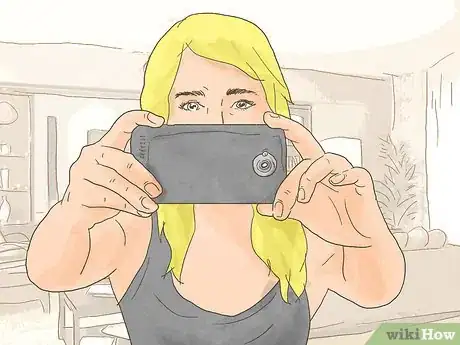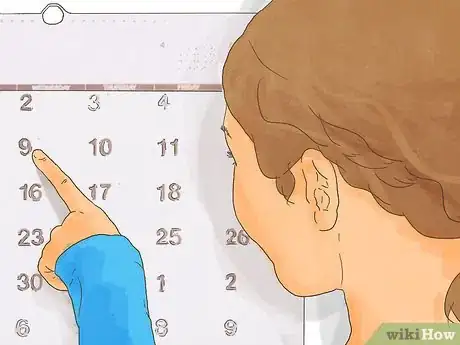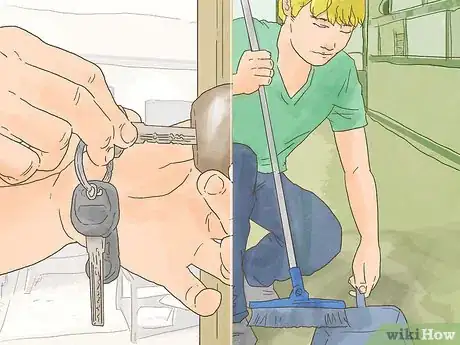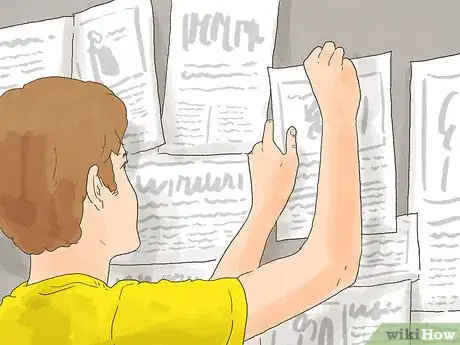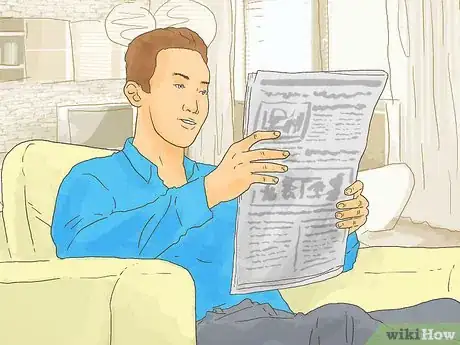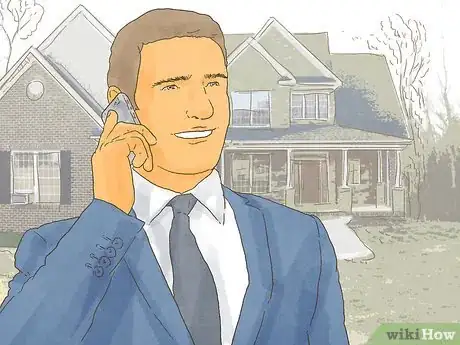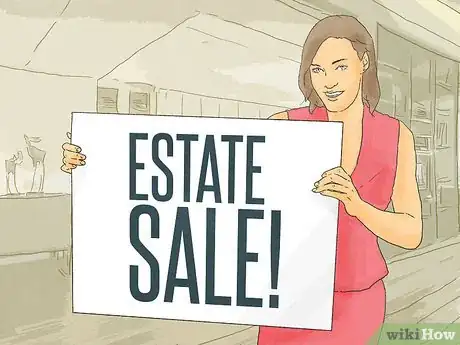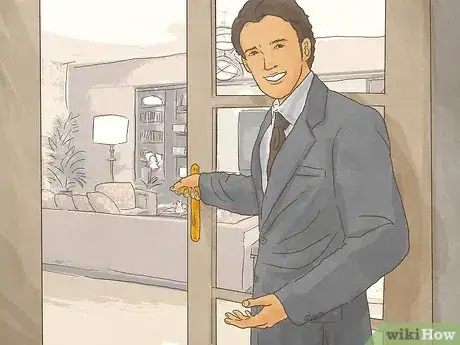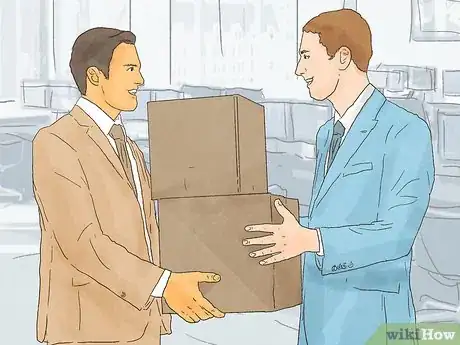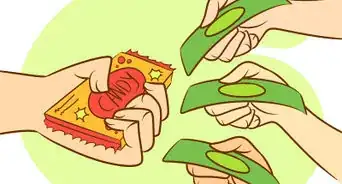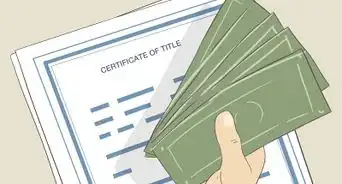This article was co-authored by Marty Stevens-Heebner, SMM-C, CPO® and by wikiHow staff writer, Christopher M. Osborne, PhD. Marty Stevens-Heebner is a Certified Professional Organizer (CPO) and Founder of Clear Home Solutions, a home organizing and senior moving management company based in southern California. Marty is the first Certified Senior Move Manager (SMM-C) in the United States and is a Certified Aging in Place Specialist (CAPS) through the National Association of Home Builders. She is the President-Elect and is on the board of directors of the National Association for Senior Move Managers, a member of the National Association of Professional Organizers, and has been acknowledged as a Hoarding Specialist and ADHD Specialist through the Institute for Challenging Disorganization.
wikiHow marks an article as reader-approved once it receives enough positive feedback. In this case, several readers have written to tell us that this article was helpful to them, earning it our reader-approved status.
This article has been viewed 138,509 times.
At an estate sale, the contents of a home are sold to the general public, usually after the homeowner’s death or a foreclosure. Because this often involves cataloging and pricing large amounts of material, many people choose to hire an estate sale service. However, with abundant planning and patience, it's possible to hold a successful estate sale yourself.
Steps
Organizing the Sale
-
1Divide the property to be sold into categories. To make pricing and selling easier, remove all objects from their original places and sort them by function or, in some cases, value. Categories might include appliances, clothing, and works of art.[1]
- Additionally, you may want to create a separate category for especially expensive items. You may even decide to keep expensive antiques and the like out of the estate sale and try to sell them separately for a greater profit.[2]
-
2Assess the quality and condition of all objects to be sold. Clean furniture, jewelry, fine dishware, and other items thoroughly but carefully. Make minor repairs when you can, but leave damaged items as-is if you don't know how to fix or restore them properly.
- Don’t hold items back or throw them out because you think they’re too dirty, too damaged, or just plain junk. Remember that one person’s trash is another’s treasure.[3]
Advertisement -
3Create a catalog of all the objects to be sold. Include details like category, size, age, functionality, etc. Do a thorough and neat job, and print out multiple copies, especially if there are multiple people (e.g., siblings) with a financial stake in the estate.[4]
-
4Set up displays for the items in the home. While some items, like artwork or furniture, might be better left in their typical setting, it’s best to group most items together by type on display tables. (You may, however, try to keep kitchen items on tables in the kitchen, and so on.) Borrow, buy, or rent as many folding tables as you need and/or will fit into the house.
- Don’t ignore the possibility of theft, especially of smaller valuables. Place valuable items like jewelry near the checkout table, or even under lock and key in display cases.
-
5Price the items. Consult catalogs, antique shops, online resale sites, and other estate sales to get an idea of what your items are worth. Include a price range for each item.
- Do your homework. If you set prices too low, you’ll be throwing money away; if you set them too high, you’ll scare off potential buyers.
- If you do not need to liquidate your entire stock, include a price below which you will not be willing to sell.
-
6Take pictures of all the objects. Depending on value, size, etc., do so either individually or in groups to serve as references for merchants and for use in advertisements.[5]
- You can post some of these photos in your online advertising, or use them to separately place some of your most desirable items for sale online.
-
7Set a date for your sale. Professional estate sales often last two or three days, usually over a weekend. Keep an eye out for local events or holidays and consider them carefully. They might bring people in or keep people away, depending on circumstances.[6]
- Try to avoid dates when other people are holding estate sales in your area, to reduce competition.
-
8Prepare the home for crowds of buyers. In addition to setting up the items for sale on tables, you need to create easy access throughout the home and clear signage to direct visitors. Close off, lock, and place signs on any off-limits areas of the home, and put items not for sale in these areas whenever possible.[7]
- Take security precautions to protect your estate sale. To deter theft, keep only one entrance/exit open and place your checkout table nearby. Do not leave an entrance or exit open and unattended, and make sure someone is available to monitor these places. Also, keep cash and loose change in a secured box and do not leave it unattended. It is also a good idea to keep high value items, like jewelry, at the cashier’s table, where it will be kept under constant supervision.
- Make sure any hazards (uneven floors, low ceilings, wobbly railings, etc.) are clearly marked or kept off-limits. You may be legally liable for any injuries that occur.
Advertising the Sale
-
1Advertise with similar merchants in your area. Find antique shops, thrift stores, resellers, furniture stores, and other places that might be interested in purchasing your goods. Contact merchants or dealers to gauge their interest in buying any special stock or extra objects that might be left over after the estate sale, or let them have a first crack at the stuff.
- At the same time, it might be a good idea to ask the manager if you can place an ad for your sale in the window of their business. This can be a good way of spreading the word.[8]
-
2Run lots of advertisements locally. Place ads for your sale in newspapers and online, and distribute ads around your neighborhood, using posters, flyers, and leaflets.
- Do not skimp on online advertising, through avenues like social media and estate sale-specific websites.[9]
- Make fresh posts each week online if you are holding the sale over more than one weekend. Keep the word up.
- Try to contact your local radio station to see if free airtime is a possibility at any point. This can be an unlikely but unrealized opportunity.
-
3Ask about a feature story. Contact your local newspaper or community newsletter or website for a feature spot story on your estate sale, emphasizing the history of the property and the owners. Small town papers are especially interested in stories like this, and it can be an excellent way of drumming up business.
-
4Make yourself available to answer questions. If you've put a phone number on your flyers (and you should), you've got to answer the phone. If you get lots of emails, you've got to respond to them. Respond promptly, professionally, and courteously.
-
5Draw in customers on the day of the sale. Put up signs, arrows, balloons, and other notifications in the neighborhood. Contact your municipality about possibly blocking off a parking area near the home. Round up helpers and guides to direct people where to park and how to get into the home.
Conducting the Sale
-
1Recruit helpers. The more friends, family members, or even hired helpers you can round up for the sale day(s), the better. Place people both outside and throughout the home to guide customers, answer questions, and keep an eye out for theft.
- Recruit reliable, trustworthy, and knowledgeable people to help out.
-
2Start your sale early in the morning and be willing to stay open late. Some avid buyers like to show up first thing in the morning to get the best selection, while others like to slip in later to get the best deals. Especially if you're trying to sell as much as possible, go the extra mile to liquidate your items.
- Many people will expect better deals and special discounts later in the day, or on the last day of a multi-day sale. Consider beforehand how low you are willing to go in order to liquidate an item.
-
3Deal with the crowds cordially and professionally. Work with a smile on your face, answer questions, and help guide people to items that might interest them. Clarify where the checkout line is, and use a first-come, first-served process for sales.[10]
- Think long and hard about “holding” items for customers. Serious buyers should come to an estate sale with an adequately-filled wallet.
- If the house gets too crowded, place someone at the entrance to do entry control. Ask newcomers to wait to enter until someone else has departed the house.
-
4Follow clear procedures for sales transactions. Make note of all items sold and to whom. Provide receipts. Depending on where you hold the sale, you may have to keep records for sales and/or income tax purposes.[11]
- Also, if there are any other individuals with a stake in the estate, you need records to provide them with as well.
- Watch carefully for counterfeit bills as you take in cash (especially in larger denominations). Accepting credit cards is a bit more work but provides a lot of convenience for customers. In most cases, avoid accepting checks.
-
5Liquidate unsold items through merchants or third parties. If you can’t find any buyers for some of the items, look into donating them to charity. You might get a tax write-off. Throw out items only as a last resort.
- Especially if you anticipate having some excess stock at the end of the sale, make contact ahead of time with any charities or trash haulers. That way, you can clear out the house more quickly and efficiently.
-
6Consider hiring an estate sale company next time. Estate sales are often more stressful than people anticipate, especially if there is sentimental value attached to the items being sold (for instance, it’s your recently-deceased mother’s home). For around 20% to 50% of the gross profit (but ideally no more than 35%), a good estate sale company will do practically every aspect of the process for you.[12]
- Research estate sale professionals in your area, get references, do interviews, and get a contract in writing before moving forward.
Community Q&A
-
QuestionWhat type of payment should we accept? Cash only, personal checks, money orders?
 Community AnswerThe more payment types you accept, the more buyers will spend. However, there is risk with checks. In Michigan, checks made to "cash" cannot be stopped, so it is a safer way to accept checks as payment. Credit cards are very convenient for many buyers, but sellers must have a way to process them.
Community AnswerThe more payment types you accept, the more buyers will spend. However, there is risk with checks. In Michigan, checks made to "cash" cannot be stopped, so it is a safer way to accept checks as payment. Credit cards are very convenient for many buyers, but sellers must have a way to process them. -
QuestionWhy do you have to write a receipt out to who and how much for something sold?
 Community AnswerIf you are doing this as a business, performing the service for someone else, or want to document sales for tax reasons, receipts would come in handy.
Community AnswerIf you are doing this as a business, performing the service for someone else, or want to document sales for tax reasons, receipts would come in handy. -
QuestionHow much cash should I have on hand to make change with when I hold an estate sale?
 Community AnswerThis will vary according to the amount of property you're selling and the price you're selling it at. $150 (U.S.) is probably a good mid-range estimate; but have primarily smaller bills on hand so you can make change.
Community AnswerThis will vary according to the amount of property you're selling and the price you're selling it at. $150 (U.S.) is probably a good mid-range estimate; but have primarily smaller bills on hand so you can make change.
Warnings
- Estate sale planning is not easy, especially with large estates. In many cases, it is in your financial interest to hire an appraiser or even an estate sale professional, as the benefits gained from their expertise will outweigh the costs of their services.⧼thumbs_response⧽
Expert Interview
Thanks for reading our article! If you'd like to learn more about estate sales, check out our in-depth interview with Marty Stevens-Heebner, SMM-C, CPO®.
References
- ↑ http://estatesalesguide.com/10-simple-tips-holding-successful-estate-sale/
- ↑ https://www.realdirect.com/blog/preparing-to-sell-your-home/how-to-run-an-estate-sale/
- ↑ https://www.realdirect.com/blog/preparing-to-sell-your-home/how-to-run-an-estate-sale/
- ↑ http://estatesalesguide.com/10-simple-tips-holding-successful-estate-sale/
- ↑ http://estatesalesguide.com/10-simple-tips-holding-successful-estate-sale/
- ↑ http://estatesalesguide.com/10-simple-tips-holding-successful-estate-sale/
- ↑ http://estatesalesguide.com/10-simple-tips-holding-successful-estate-sale/
- ↑ https://www.realdirect.com/blog/preparing-to-sell-your-home/how-to-run-an-estate-sale/
- ↑ https://www.realdirect.com/blog/preparing-to-sell-your-home/how-to-run-an-estate-sale/
About This Article
To hold an estate sale, start by separating items into categories so it’s easier to price them. Once things are in categories, create a master list of everything you want to sell, including its age, function, and history. Next, research prices using catalogs, online resale sites, or antique shops, and price each item on your sheet. Then, pick a date for the sale and recruit some friends to be on hand to help you. Finally, set out the items according to category on folding tables, so that buyers can find what they want more easily. For advice on how to advertise your sale and draw lots of buyers, read on!
